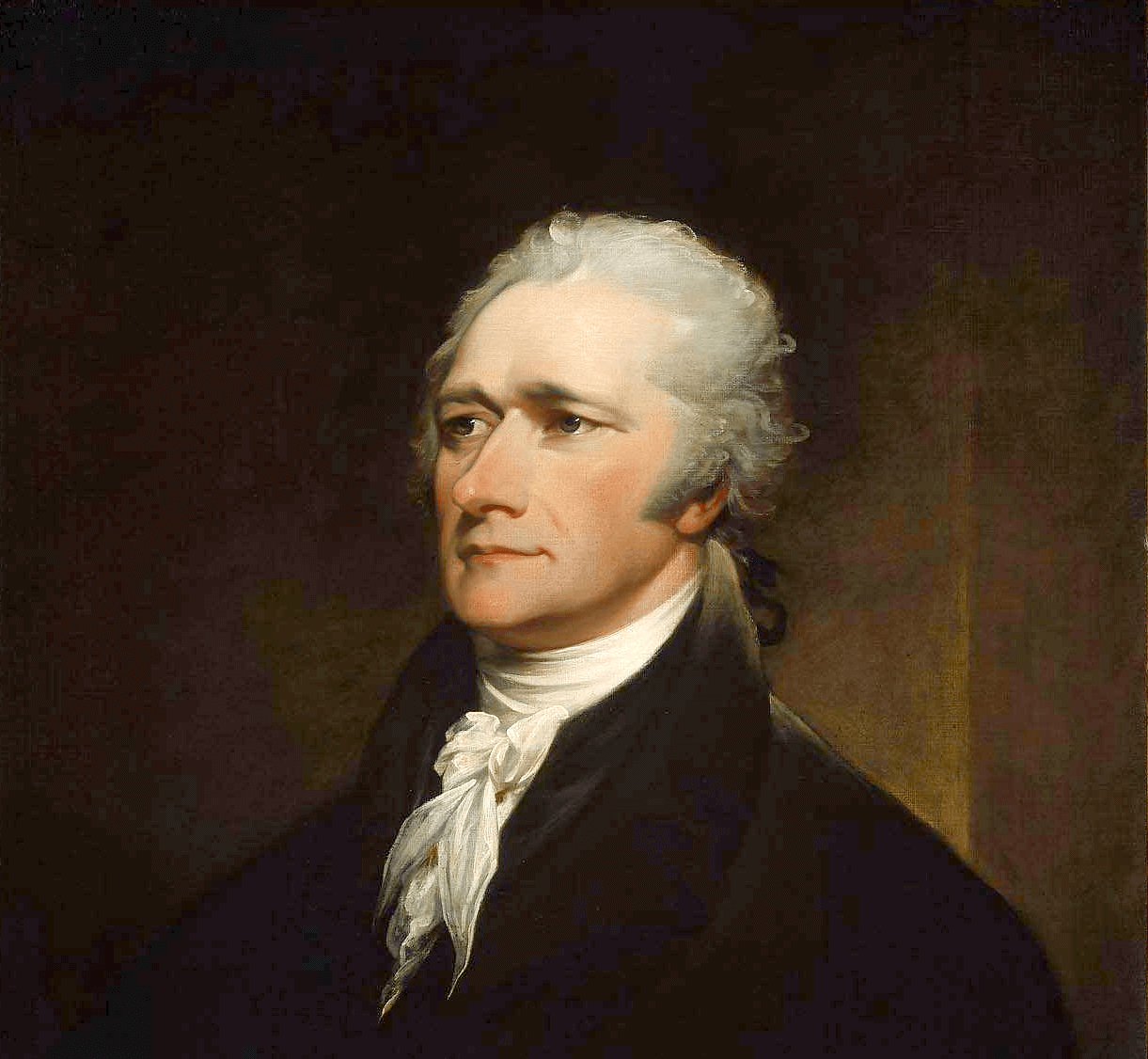Alexander Hamilton emigrated to New York in 1773 and entered King’s College (now Columbia), where he penned pamphlets defending the revolutionary cause. When war broke out he enlisted in the Continental Army and served much of the time as an aide-de-camp to General George Washington. After a term in the Continental Congress (1782–83) he began to practice law. Convinced that the government under the Articles of Confederation was impotent, he attended the Annapolis Convention (1786) and was instrumental in parlaying that meeting into a call for the Constitutional Convention of 1787. His major work in support of the proposed Constitution was his collaboration with John Jay and James Madison to produce The Federalist (1788), arguably the most important body of American political writing.
In 1789, Hamilton became the first secretary of the treasury, in which capacity he was committed to free-market capitalism, primarily on moral grounds. He thought that the greatest benefit of a system of government-encouraged private enterprise was the enlargement of the scope of human freedom. “To cherish and stimulate the activity of the human mind” was a distinct good, and “every new scene, which is opened to the busy nature of man to rouse and exert itself, is the addition of a new energy to the general stock of effort.”
Instructed by the House of Representatives to devise a plan for coping with the Revolutionary War debts, he produced in 1790 his “Report on Public Credit.” In it and subsequent reports he advocated the creation of a stable but flexible monetary system. Hamilton’s 1791 “Report on Manufactures” was never fully implemented, for men crying “give the people liberty,” but meaning “give us power,” banded together to stop him. Still, until he resigned as secretary in 1795, he functioned essentially as the “prime minister” for the Washington administration, and the institutions he created endured and functioned as he had hoped they would. He died in 1804 as a result of a duel with Aaron Burr.
Hamilton trusted neither elites nor the masses. “Give all power to the many,” he said, and “they will oppress the few. Give all power to the few, they will oppress the many. Both therefore ought to have power, that each may defend itself against the other.” Furthermore, he did not trust individual virtue; he believed that all men were ruled by their passions rather than by reason, and public men were especially motivated by ambition and avarice. His work was thus based upon a “pessimistic” view of mankind. And yet he also believed that if public institutions were properly organized the passions could be channeled, on the average, for the collective good.
Hamilton saw provincialism and inertia as keeping eighteenth-century America from becoming a great nation. The system as he described it discouraged industry because status derived not from the marketplace, where deeds and goods could be impartially valued, but from birthrights and local hierarchies. He sought, through the office of minister of finance, to reshape that social order. To make society fluid and open to merit, what needed to be done was to monetize the whole. He regarded money as a neutral, impersonal arbiter that would tie individual interests to the interests of the whole. Infused into an agrarian system, money would be the fermenting yeast that gave rise to change and prosperity. And he thought that the most efficacious way of combining freedom and energy in a people was to rely less upon ordering what was to be done than by establishing the way and procedures by which things were done. His view of society was also reflected in his opposition to slavery, and he was an active participant in New York’s antislavery movement.
Hamilton rejected laissez-faire theories. “Experience teaches,” he wrote, “that men are often so much governed by what they are accustomed to see and practice, that the simplest and most obvious improvements, in the most ordinary occupations, are adopted with hesitation, reluctance, and by slow gradations.” Hamilton proposed, therefore, to use government to encourage economic change. Yet, he was emphatic in his reliance upon voluntarism and capitalism.
Further Reading
Richard Brookhiser, Alexander Hamilton: American
Ron Chernow, Alexander Hamilton
Alexander Hamilton, The Papers of Alexander Hamilton
Forrest McDonald, Alexander Hamilton: A Biography
John C. Miller, Alexander Hamilton: Portrait in Paradox
This entry was originally published in American Conservatism: An Encyclopedia, p. 369.














